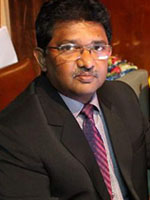ජ්යේෂ්ඨ මහාචාර්ය අනුර මනතුංග මහතා පුරාවිද්යා අධ්යක්ෂ ජනරාල් ධුරයට
New Director General of Archaeology
නව පුරාවිද්යා අධ්යක්ෂ ජනරාල්
Senior Prof. Anura Manatunga appointed as the Director General of Archaeology due to the vacant of the retirement of former Director General Dr. Senarath Dissanayake.
Prof. Anura Manatunga is a Senior Professor of the Department of Archaeology, University of Kelaniya. He served as a Dean of the Faculty of the University of Kelaniya during 1996-2001 period.
ජ්�...







